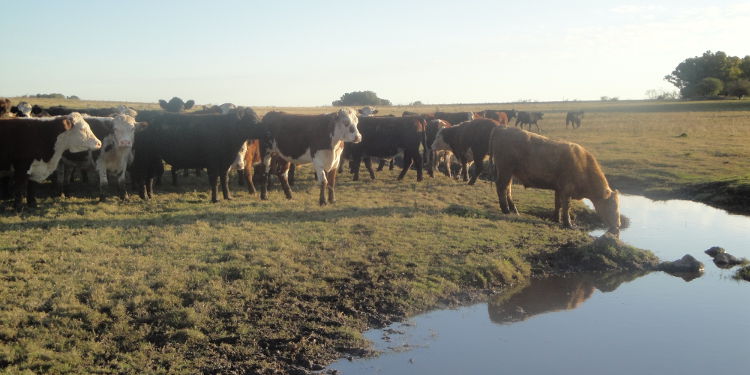
Date: 12/02/2015
The IMS International Meat Secretariat, drafted a document for the COP21 Meeting on Climate Change analyzing the impact of the meat industry and livestock on this matter.
"Reducing greenhouse gas emissions and improving the environmental performance of meat and livestock are key priorities for the meat and livestock industry," says the document.
"We are reducing GHG emissions by adopting innovative health and husbandry practices and tools that support sustainable and environmentally responsible production of animal protein, utilizing fewer resources and resulting in a lower environmental impact," the document states.
According to the Food and Agriculture Organization (FAO), livestock, including dairy, contributes to about 14.5% of global emissions of greenhouse gases.
Among the benefits of the cattle raising activity, IMS highlights the livelihood of rural communities, nutrition security and diversity of diets as well as its contribution to people living in poverty - according to FAO one million poor people obtain at least part of their livelihood from livestock production.
About IMS
IMS International Meat Secretariat (OPIC - Oficina Permanente Internacional de la Carne, for its acronym in Spanish) is a nonprofit organization based in Paris, which gathers the most important stakeholders in the global meat sector of cattle, ovine and pork.
INAC is an active member of IMS and together they are co-organizing the next World Meat Congress to be held in Punta del Este in November 2016.
IMS has expert committees in the bovine sector (calves and cows), pork and ovine, as well as for animal care, sustainability, nutrition and human health. IMS members also take part as experts in the economic, scientific and marketing committees.
These committees provide expert guidance and information on global public policies and scientific research, and facilitate the understanding of members with respect to the problems they must face in the meat and cattle sector.
In addition, it works with international organizations such as FAO and OIE on major issues related to meat.


